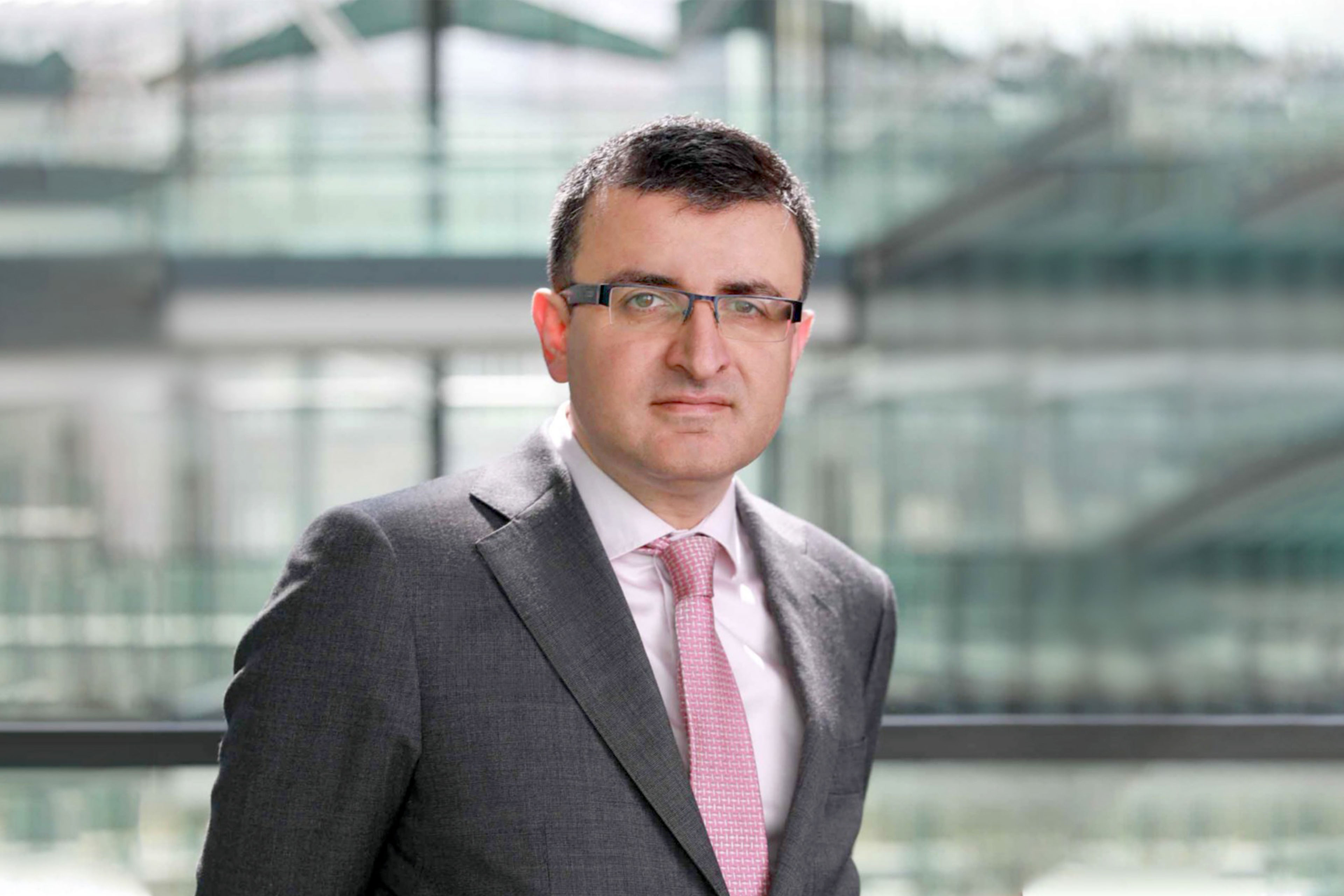EY refers to the global organization, and may refer to one or more, of the member firms of Ernst & Young Global Limited, each of which is a separate legal entity. Ernst & Young Global Limited, a UK company limited by guarantee, does not provide services to clients.
Investors shun long-term ESG rewards in quest for short-term gains
- EY Institutional Investor Survey shows that 92% of investors are reluctant to sacrifice short-term gains for the longer-term rewards of ESG investments; two-thirds (66%) say ESG factors are likely to have less weight in their firm’s future investment decisions
- Almost nine in 10 investors (85%) say that greenwashing is a more acute problem than it was five years ago
- More than one in three investors (36%) are unhappy with the progress companies have made on nonfinancial reporting; 93% still believe companies will meet decarbonization and sustainability targets
A blinkered view of climate change and sustainability has taken hold across the world’s investor community and is fueling a focus on short-term performance at the expense of longer-term gains from environmental, social and governance (ESG) investments, according to the latest EY Institutional Investor Survey.
The survey, now in in its 11th year, canvasses the views of 350 key decision-makers from investment firms around the world – including asset managers, wealth managers, insurers and pension funds – and explores the extent to which they are building sustainability into their investment strategies, as well as their use of sustainability reporting in making investment decisions.
The findings suggest there is a significant gap between investors’ statements on the importance of ESG and the action they are taking. Almost nine in ten of those surveyed (88%) say that their firms have made more use of ESG information over the past year – reflecting huge growth in corporate reporting and the proliferation of information needed to guide reporting. However, ESG issues do not appear to be a priority when it comes to decision making. More than nine in 10 investors who responded to the survey (92%) do not believe it is worth sacrificing short-term performance for the longer-term potential benefits of ESG investments, and two-thirds (66%) say that ESG considerations are likely to play less of a role in investment choices over the coming years.
Dr. Matthew Bell, EY Global Climate Change and Sustainability Services Leader, says: “The global investor community should be front and center of the drive for sustainability, but instead what we’re witnessing is worrying levels of apathy. Many investors do make the right noises on climate change but there’s a real failure to walk the talk.
“In some ways, it’s understandable that investors are being passive – they are rightly worried about the many holes in company reporting, but what’s less forgivable is the apparent search for instant gratification when it comes to profitability. There’s a pervasive view that immediate gains matter more than the valuable slow-burn rewards from ESG investments; and despite the latest UN assessment highlighting the lack of action on climate change, and that global warming could pass three degrees Celsius by 2100, with devastating impacts, investors seem to be focused on shorter term economic cycles and geo-politics.”
To the extent that investors do consider nonfinancial performance in their decision-making, they are much more comfortable looking at the immediate future than further ahead. Only 25% of respondents say they are equipped to assess the long-term impacts of ESG policies and performance, while 57% say they feel able to look at short-term impacts.
Only slightly more than half of the investors surveyed (55%) believe climate change will have any impact at all on their investment strategies, with 63% saying the main factor will be changes to the business cycle, and 62% influenced most heavily by possible changes in trade restrictions and tariffs around the world.
In addition, the vast majority of investors who participated in the survey (93%) claim they are confident that companies will still meet their targets for sustainability and decarbonization and 62% say they are well equipped to assess companies’ climate change reports, however the source of this confidence seems uncertain: only 17% say they monitor changes in companies’ climate policies.
This failure to prioritize ESG issues could be in part down to a suspicion across the investor community that companies are not presenting accurate information on their sustainability credentials. Almost nine in ten investors who responded (85%) see greenwashing as a bigger problem than it was five years ago.
There is also clear dissatisfaction with the efforts companies are making to deliver nonfinancial reporting – more than one-third (36%) of investors who took part in the survey say not enough progress has been made on this front. Eight in ten (80%) say reports need to more clearly highlight truly material (i.e. significant) statements and be produced in a way that makes them easier to compare and contrast with other company reports. Nearly two thirds (64%) say there is a need for independent auditing of companies’ sustainability disclosures.
Dr Matthew Bell says: “Far too many take the view that sustainability doesn’t count for much when it comes to investment decisions, but this couldn’t be further from the truth. Unchecked climate risks can spell disaster for companies and their financial backers, so it’s incumbent on investors to know what they’re putting their money into. Equally, climate action can open the door to strong growth – but these are opportunities easily missed by investors who haven’t done their homework.”
“If the world is to stand any chance of hitting net zero goals, we’ll need trillions of dollars of funding and that all hinges on having an investor community that takes sustainability seriously, treats it as a source of value rather than purely as a risk, and backs up words with actions. Done right, we could see an uptick in capital flowing into vital climate change projects, providing a much needed shot in the arm for climate finance and untold ripple effects in the battle against climate change.”
-ends-
About EY
EY is building a better working world by creating new value for clients, people, society and the planet, while building trust in capital markets.
Enabled by data, AI and advanced technology, EY teams help clients shape the future with confidence and develop answers for the most pressing issues of today and tomorrow.
EY teams work across a full spectrum of services in assurance, consulting, tax, strategy and transactions. Fueled by sector insights, a globally connected, multi-disciplinary network and diverse ecosystem partners, EY teams can provide services in more than 150 countries and territories.
All in to shape the future with confidence.
EY refers to the global organization, and may refer to one or more, of the member firms of Ernst & Young Global Limited, each of which is a separate legal entity. Ernst & Young Global Limited, a UK company limited by guarantee, does not provide services to clients. Information about how EY collects and uses personal data and a description of the rights individuals have under data protection legislation are available via ey.com/privacy. EY member firms do not practice law, where prohibited by local laws. For more information about our organization, please visit ey.com
About the research
The EY 2024 Institutional Investor Survey is based on a survey of 350 investment decision-makers from around the world. This survey was conducted in 2024 by the EY Global Climate Change and Sustainability Services (CCaSS) group and the Custom Research Lab at Institutional Investor, LLC. The decision-makers who were surveyed work for asset management firms, wealth management firms, private banks, insurers, pension funds, family offices, foundations, endowment funds and sovereign wealth funds. Their job titles include vice president or director of investments, chief investment officer, head of ESG/ sustainable investments, portfolio manager and other investment decision-maker. Their institutions’ assets under management (AUM) range from less than US$1 billion to US$50 billion or more. In addition, several institutional investors and EY executives were interviewed to capture their views on the research results and the topic more generally. Our thanks go to all who contributed their insights.
Related news
LONDON, 2ND DECEMBER 2024: Leaders across Europe’s financial services sector continue to integrate Artificial Intelligence (AI) and Generative AI (GenAI) technologies into their operations to achieve productivity and efficiency uplifts, according to the second EY European Financial Services AI Survey, but only 9% rank themselves ahead of the curve.
Joe Depa named as EY Global Chief Innovation Officer to lead its global innovation strategy
LONDON, 22 NOVEMBER 2024 – The EY organization announces today the appointment of Joe Depa as the new EY Global Chief Innovation Officer, effective immediately.
LONDON, 14 NOVEMBER 2024. The EY organization today announces an alliance between Regnology, a leader in regulatory reporting, and EY ifb to give clients access to regulatory and supervisory technologies and solutions to help ensure streamlined compliance and drive large-scale transformations.



